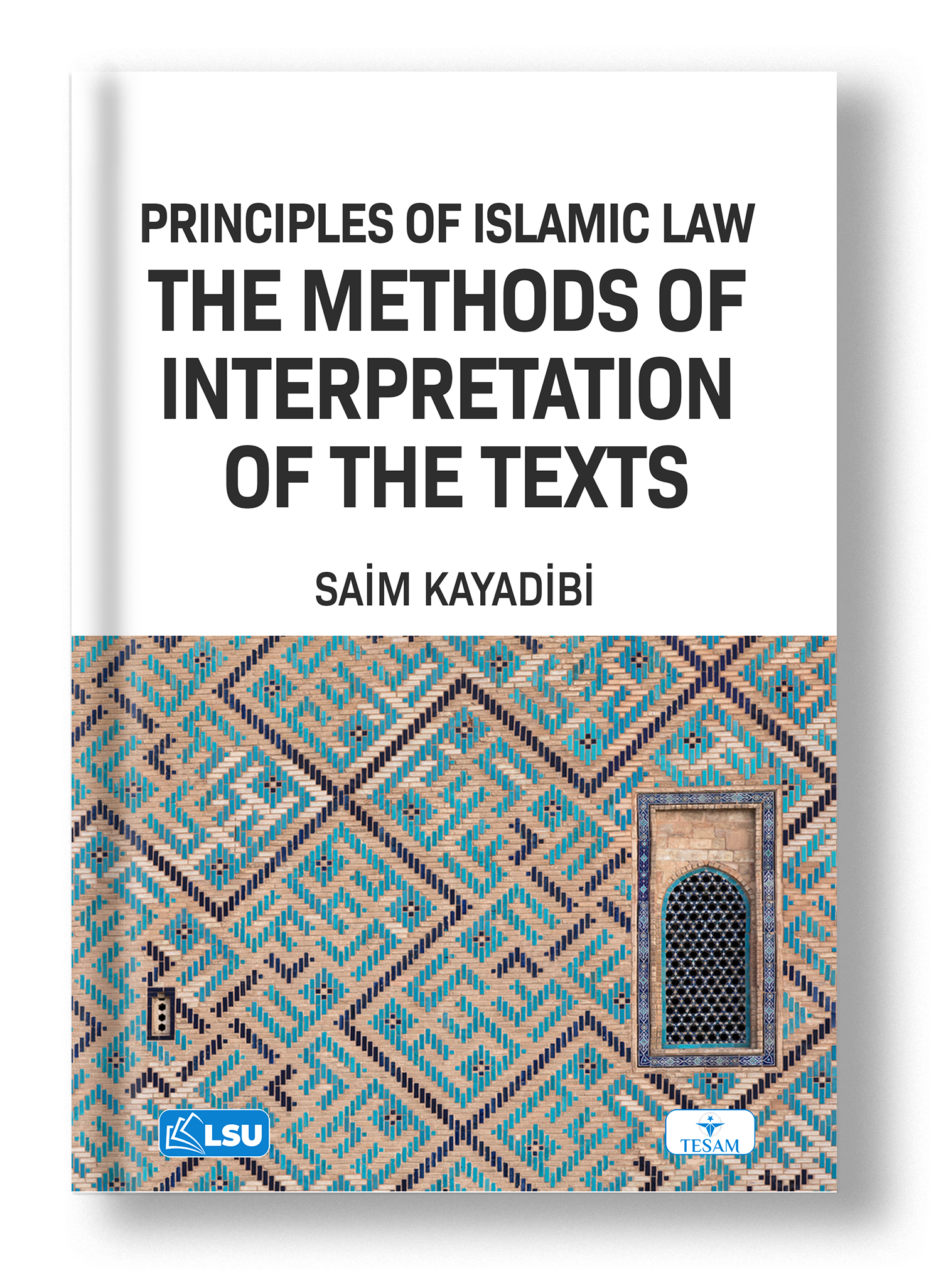TESAM YAYINLARI
Bilgi, İş birliği ve Yaratıcılığın Buluştuğu Nokta
Principles of Islamic Law and the Methods of Interpretation of the Texts (UṢŪL AL-FIQH)
Principles of Islamic Law and the Methods of Interpretation of the Texts (UṢŪL AL-FIQH)
| Editör | ||
|---|---|---|
|
SAİM KAYADİBİ is a Professor Dr. at Marmara University Institute of Islamic Economics and Finance (MUISEF). Born in Türkiye, he studied at Al-Azhar University Egypt and the University of Jordan and obtained his MPhil and Ph.D. from Durham University, UK. From 2008 to 2010, he worked as an Assistant Professor at the University of Malaya (UM) Malaysia, Faculty of Shariah and Law; between 2010 and 2011, worked at the International Islamic University Malaysia (IIUM), Faculty of Economics and Management Sciences, Department of Economics. From 2011 to 2019, worked as an Associate Professor in the same department. Simultaneously, he worked part-time at Global Islamic Finance University Malaysia (INCEIF) from 2017 to 2019. Between 2020-2023, worked at Karabuk University Faculty of Business, Department of Finance and Banking. Since July 2023, he has been working at Marmara University Institute of Islamic Economics and Finance (MUISEF). Professor Kayadibi has contributed significantly to various academic and professional organizations. He served as the Chairman of the European Union Halal Standards Committee (CEN/TC 425) from 2013 to 2016. Additionally, he held the position of Vice President of the International Relations Department (IAD) at the International Islamic University of Malaysia (IIUM) within the Rectorate's Office for three years. In 2021, he was appointed as the Director of the Vocational School of Social Sciences. Between October 2019 and July 2023, served as the Head of the Department of Finance and Banking at the Faculty of Business Administration, and from 2022 to 2023, he served as the Dean of the Faculty of Islamic Sciences at Karabuk University in Türkiye. His expertise covers a wide range of subjects related to Islamic Law, including Usul al-Fiqh; Islamic Family Law; Hukm Theory; Islamic (Participation) Banking and Finance; Interest-Free Economic System; Islamic Money, and Capital Markets; Fiqh for Economists; Contracts (‘Uqud) in Islamic Law; Shariah Oriented Public Policy (Siyasah Shar'iyyah); Islamic Economic History and Thought and Institutions; Interest-Free Finance Standards; Takaful (Participation Insurance); and Methodological Foundations of Islamic Economics and Finance; Islamic Law of Property and Obligations; Islamic Financial Transactions (Muamalai Maliyyah); Principles of Islamic Economics. |
||
| Konular | Islam Law Uṣūl Al-Fiqh | |

| Tür | Akademik Kitap |
| ISBN | 978-625-98926-4-1 |
| E-ISBN | 978-625-94426-2-4 |
| Yayıncı | TESAM Yayınları |
| Yayın Tarihi | 20.09.2023 |
| Kapak (PDF) | |
SATIN AL
Henüz satın alma bağlantısı eklenmemiş.
